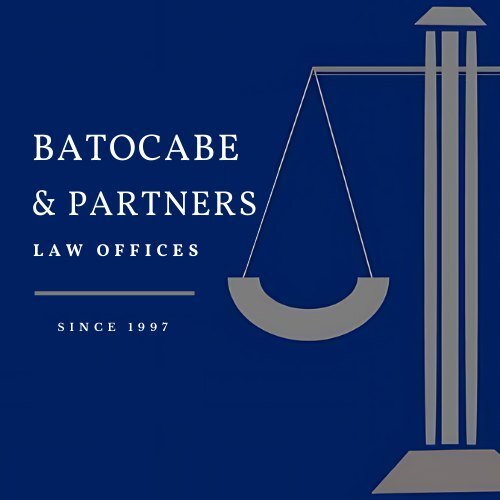Best Bail Bond Service Lawyers in Pasig
Share your needs with us, get contacted by law firms.
Free. Takes 2 min.
List of the best lawyers in Pasig, Philippines
About Bail Bond Service Law in Pasig, Philippines
Bail bond services in Pasig, a city within the Philippines' National Capital Region, serve a critical role in the country's judicial process. These services provide a means for arrested individuals to be released from custody while awaiting trial, ensuring they return for their court appearances. The bail system in the Philippines is rooted in the principle that a person is considered innocent until proven guilty. Thus, providing a bond allows for pre-trial liberty under specific conditions, often involving a financial guarantee provided by a bail bondsman.
Why You May Need a Lawyer
Individuals may require legal assistance in bail bond matters when facing arrest or criminal charges. A lawyer can help navigate the complexities of applying for bail, understanding the conditions that may be set, and negotiating the terms. Additionally, if bail is denied, a lawyer can assist in filing an appeal. Legal representation is crucial for ensuring that the individual's rights are protected throughout this process, and for providing support in complying with all legal requirements to prevent forfeiting the bail.
Local Laws Overview
The bail process in Pasig, as in the rest of the Philippines, is governed by the country's Revised Rules of Criminal Procedure. Key aspects include:
- The right to bail, which is not absolute in cases such as those involving offenses punishable by reclusion perpetua (life imprisonment) where evidence of guilt is strong.
- The amount for bail, which is typically set based on factors such as the severity of the crime, the defendant's ability to flee, and the risk they pose to society.
- The necessity for a bail bond, which may either be in the form of cash or a surety bond provided by a professional bail bondsman.
Local courts in Pasig, similar to those across the Philippines, aim to set conditions for bail that ensure the defendant will appear for trial proceedings while not being more restrictive than necessary.
Frequently Asked Questions
What is a bail bond?
A bail bond is a form of surety bond provided by a bail bond company through a bondsman that allows an individual accused of a crime to be released from custody until their court date. It acts as a financial guarantee to ensure that the defendant appears for their trial.
How is the bail amount determined?
The bail amount in Pasig is determined by the court, based on factors such as the seriousness of the offense, the accused's criminal history, and the risk of flight. The judge aims to ensure the amount is sufficient to compel the defendant's appearance in court.
Can bail be denied?
Yes, bail can be denied, especially in cases involving serious crimes like those punishable by life imprisonment where the evidence of guilt is substantial. A judge evaluates various factors before making this determination.
What happens if a person cannot afford bail?
If an individual cannot afford bail, they may seek the services of a bail bondsman who will guarantee the bail amount in exchange for a fee. Legal aid might also be available for those who qualify for financial assistance.
Are there any conditions attached to a bail bond?
Yes, individuals released on bail typically have to comply with certain conditions, such as regular check-ins with the court, travel restrictions, and not contacting the victim or witnesses. Violating these conditions can result in forfeiture of bail.
What does a bail bondsman do?
A bail bondsman provides a surety bond to the court, guaranteeing the full bail amount on behalf of the defendant, allowing for their release from custody. In return, the bondsman charges a non-refundable fee, typically a percentage of the total bail amount.
Can the bail amount be refunded?
If a cash bail is paid directly to the court, it can be refunded after the defendant's court appearances are completed. However, the non-refundable fee paid to a bail bondsman is not returned, as it is the charge for the service provided.
What should one do if they wish to contest a bail amount?
If the bail amount seems excessive or inappropriate, a defendant can request a bail hearing to contest the set amount. Legal counsel can assist in presenting the case to the court for reconsideration.
How long does the bail process take?
The bail process can vary in duration depending on court schedules, the time needed to arrange the bond, and processing times. Engaging a lawyer can help expedite this process by ensuring all paperwork and procedures are correctly handled.
What happens if someone skips bail?
If a defendant fails to appear for trial, the court may issue a warrant for their arrest, and the bail amount may be forfeited. The bail bondsman can also take action to locate the individual and return them to custody.
Additional Resources
Individuals can reach out to the following resources for assistance and guidance related to bail bond services in Pasig:
- The Department of Justice (DOJ) in the Philippines for legal advice and representation options.
- The Integrated Bar of the Philippines (IBP) for referral to qualified legal professionals.
- Local legal aid organizations that may provide affordable or pro bono services for those unable to afford private counsel.
Next Steps
If you require legal assistance with bail bond services in Pasig, start by consulting with a qualified lawyer who specializes in criminal law. They can provide detailed guidance tailored to your situation. Contact the local bar association for recommendations on experienced attorneys or reach out to community legal aid services if financial resources are a concern. Acting quickly ensures compliance with legal protocols and supports a smoother legal process.
Lawzana helps you find the best lawyers and law firms in Pasig through a curated and pre-screened list of qualified legal professionals. Our platform offers rankings and detailed profiles of attorneys and law firms, allowing you to compare based on practice areas, including Bail Bond Service, experience, and client feedback.
Each profile includes a description of the firm's areas of practice, client reviews, team members and partners, year of establishment, spoken languages, office locations, contact information, social media presence, and any published articles or resources. Most firms on our platform speak English and are experienced in both local and international legal matters.
Get a quote from top-rated law firms in Pasig, Philippines — quickly, securely, and without unnecessary hassle.
Disclaimer:
The information provided on this page is for general informational purposes only and does not constitute legal advice. While we strive to ensure the accuracy and relevance of the content, legal information may change over time, and interpretations of the law can vary. You should always consult with a qualified legal professional for advice specific to your situation.
We disclaim all liability for actions taken or not taken based on the content of this page. If you believe any information is incorrect or outdated, please contact us, and we will review and update it where appropriate.











